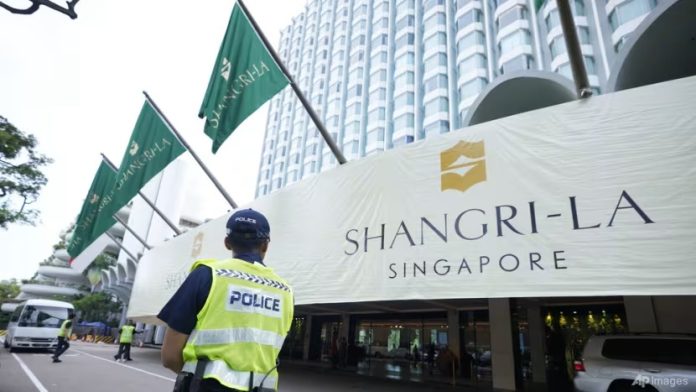Singapore, May 31: The tense US-China relationship has been in the limelight and is expected to be at the centrestage of the Shangri-La dialogue, which is set to begin today in Singapore.
The annual gathering in Singapore has become an increasingly influential forum for the world’s top defence and security policy types, particularly as concerns over China’s military actions in the region and the broader geopolitical battle for influence in the Asia-Pacific have shot up the political agenda.
Recently, the US Congress gave an ultimatum that ByteDance should divest TikTok to avoid a ban in the United States, following which there was a heated grilling of its Singaporean Chief Executive Shou Zi Chew, encapsulating the conundrum facing Singapore.
The ultimatum was an effort to impose a ban on TikTok over concerns about potential national security threats posed by ByteDance.
Geopolitically, Singapore is treading a fine line as it positions itself between an increasingly assertive China and the US.
Moreover, Filipino President Ferdinand Marcos Jr will present a keynote speech on Friday evening. Speeches by Indonesia’s President-elect Prabowo Subianto and US Secretary of Defense Lloyd Austin are scheduled for Saturday.
US Defence Secretary Lloyd Austin is planning to hold talks with Chinese Defence Minister Admiral Dong Jun in Singapore on the sidelines of a security conference, the Pentagon said last week.
A bilateral talk with his Chinese counterpart Dong Jun comes days after Beijing engaged in military exercises around Taiwan.
Representatives from over 40 countries, including Ukraine, along with around 350 journalists, are expected to attend the annual conference organized by the International Institute for Strategic Studies (IISS).
Out of 40, some of the confirmed world leaders who will be attending the forum include, Philippines President Ferdinand Marcos Jr.; Indonesia’s President-elect Prabowo Subianto; US Defense Secretary Lloyd Austin; China’s Defense Minister Dong Jun; Japan’s Defense Minister Minoru Kihara; and EU High Representative Josep Borrell.
The competition between Washington and Beijing remains prominent, despite signs of improvement since President Joe Biden’s meeting with Xi Jinping last November in San Francisco, as reported by Politico.
China’s “economic, diplomatic and security coercion has been uneasily felt by countries across the region” including India, South Korea, Japan, Malaysia, Vietnam, Indonesia and the Philippines, and has even extended into the South Pacific.
Meanwhile, US Deputy Secretary of State Kurt Campbell warned Europe about China’s efforts to help Russia in its war against Ukraine. Campbell described Beijing’s aid for Russia over the last 18 to 24 months as “deeply concerning.”
“I do want to underscore that what we’ve seen from China to Russia is not a one-off or a couple of rogue firms involved in supporting Russia. This is a sustained, comprehensive effort that is backed up by the leadership in China that is designed to give Russia every support behind the scenes,” Campbell said.
Notably, when it comes to combined military exercises, the US is the partner of choice for most Asia-Pacific countries, engaging in 1,113 exercises with nations in the region between 2003 and 2022. However, China’s total was less than 130.









































